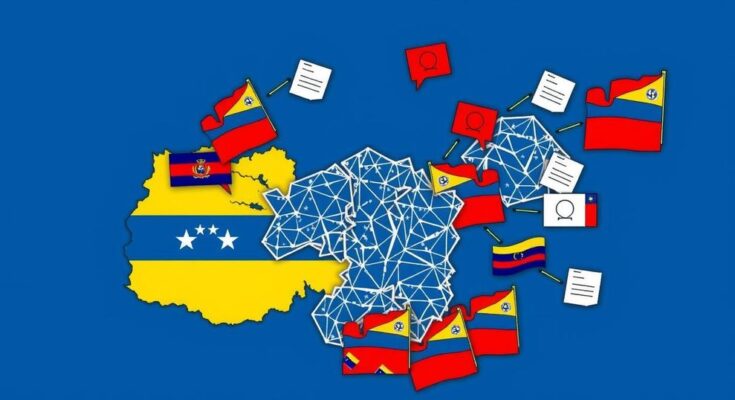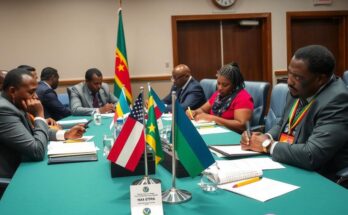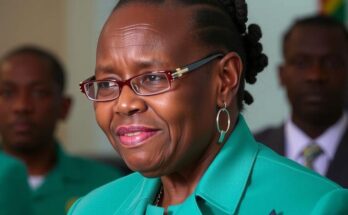The article discusses the current political crisis in Venezuela following controversial elections, highlighting international support for opposition leaders like Edmundo González. Protest movements emphasizing election integrity have emerged, with significant regional and global political implications reflecting a desire for democratic change. Charismatic figures in the opposition, such as María Corina Machado, represent a strong commitment to restoring democracy against a backdrop of persistent authoritarianism.
The political landscape in Latin America is undergoing significant transformations, particularly in Venezuela, where President Nicolás Maduro’s recent reelection has been surrounded by controversy. Following his claim of victory in August, opposition leaders refuted his assertion, presenting evidence through social media of a significant loss in votes. This ignited protests dubbed the “Great Protest for the Truth,” emphasizing a widespread demand for electoral integrity.
Recently, the Biden administration recognized Edmundo González Urrutia, the primary opposition candidate, as the “president-elect” of Venezuela, coinciding with Colombian President Gustavo Petro denouncing the July 28 election as flawed. This follows the European Parliament’s acknowledgment of Mr. González as the legitimate leader of Venezuela. Various international observer missions, including The Carter Center, have supported this designation.
Venezuela witnessed a similar situation five years ago with opposition leader Juan Guaidó, who proclaimed himself interim president to widespread international recognition. However, this did not alter the political status quo. Current dynamics indicate potential differences; several of Venezuela’s regional allies are now openly opposing Maduro and demanding transparency in the electoral process.
In Argentina, a federal court has ordered the arrest of Maduro and his associates regarding crimes against humanity, while Chile’s President Gabriel Boric criticized the pro-Maduro Supreme Court for perpetuating electoral fraud. This shift is potentially fueled by the populace’s growing unrest against corrupt governance across Latin America, where citizen movements have recently ousted several leaders.
According to David Recondo from the Center for International Studies at Science Po, Latin America is experiencing a critical juncture as dissatisfaction with elites fosters high voter turnout and calls for electoral integrity. While international acknowledgment of Mr. González’s victory may not ensure his ascension to power amid Maduro’s solid alliances with countries like China and Russia, the opposition continues to rally.
Charismatic opposition leader María Corina Machado, though banned from participation, has sought to unify support behind González while remaining in hiding. With unwavering determination, she asserts, “I am willing to do what has to be done for as long as it takes to assert the truth and popular sovereignty.” This reflects a persistent commitment to restoring democracy in Venezuela amid the ongoing political turmoil.
The Venezuelan political crisis stems from years of authoritarian rule under President Nicolás Maduro, who has faced increasing opposition both domestically and internationally. The recent presidential elections have been marred by allegations of fraud, leading to significant protests and demands for electoral integrity from opposition groups. The context is further complicated by international relations, where global powers are taking sides, influencing both public sentiment and political maneuvers within the region.
In conclusion, the struggle for electoral honesty and democratic governance in Venezuela has garnered substantial international attention and support for its opposition leaders. The recognition of Edmundo González Urrutia as the president-elect by major powers signals a pivotal shift, albeit accompanied by challenges posed by Maduro’s enduring alliances. As citizens across Latin America demand accountability, the momentum towards political reform in Venezuela appears to gain traction, catalyzed by the spirited resolve of opposition leaders committed to restoring democracy.
Original Source: www.csmonitor.com




